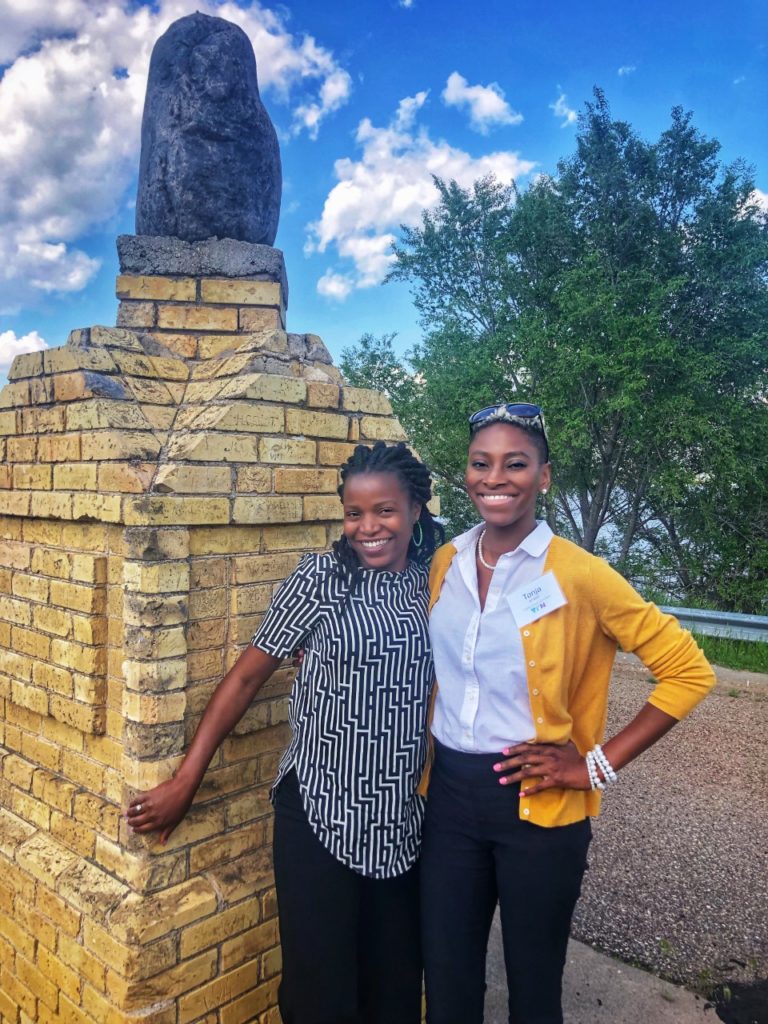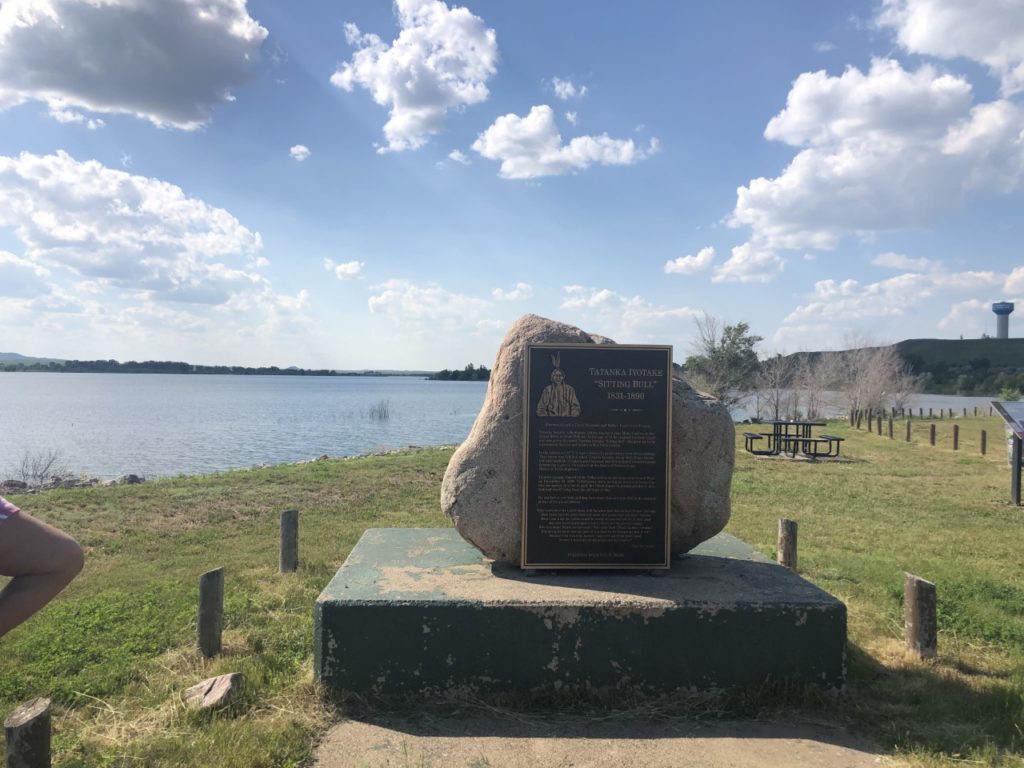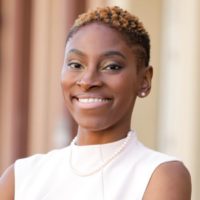By Steven Higashide, TransitCenter
Going PLACES is an occasional blog series featuring the voices and experiences of TFN’s PLACES Fellows. For more information on the fellowship, and to read past blog posts from our fellows, visit here.
Our first order of business when we arrive in North Dakota for our most recent site visit as PLACES fellows, a red state and the 50th most travelled to state in the nation, was a conversation on assumptions:
What assumptions are you holding for this site visit as it relates to Bismarck?
What are your assumptions of Standing Rock Reservation? What are your expectations of the interactions and experiences that you will embark upon this week?

I didn’t know much about North Dakota outside of valleys, reservations, and of course the recent outcry at Standing Rock; a protest against the construction of the Dakota Access Pipeline or #NODAPL. This information, inferences to the current administration and my own knowledge of the history of indigenous oppression, meant my assumptions were filled with emotion — and not exactly the happy kind. There was excitement around learning about a new culture, but for the most part my assumptions centered around fear, anger, frustration, and anxiety for the indigenous people. How could it not, right? When I think about my own experiences in this country, with the history of marginalization and protests within the black community, I find it challenging to operate without a sense of anxiety in this climate. I assumed the people we would meet would operate in a similar space. Surprisingly, the most important lesson that I learned during this visit to Standing Rock was not about injustice — it centered around healing.
It is emotionally draining to operate in a space fueled by powerlessness, trauma, and hate. Those are not the items that we need to bring to the table in order to get to the work. We have to find ways to counteract our negative assumptions and emotions so that we can understand the pain that is being illustrated and learn how show up differently. I am reminded of this famous quote:
“For the master’s tools will never dismantle the master’s house.” – Audre Lorde
How can we reframe our expectations to counteract the trauma and the responses that we are seeing? First, we have to be grounded. Can we drop everything that we thought we knew, and operate with a lens to understand?

The following takeaways from Bismarck were monumental for me in reframing my expectations and counteracting my own trauma responses:
1. Ask specific questions.
2. Try not to put your lens on the situation at hand.
3. Amplify the stories that are shared.
4. How do we actively check our privilege?
5. And in the immortal words of Kendrick Lamar: Be humble.
I found it was helpful to create this catchy phrase based on the key words in that list, plus Kendrick’s reminder to be humble: Specificity, Lens, Amplify, Privilege — Kendrick Lamar S.L.A.P.s. (For those of you not versed on slang, music that “slaps” means music that’s cool.) And Kendrick Lamar’s music is banging, right?
I found it both encouraging and enlightening that the people of Standing Rock focused on prayer instead of fear. The Sioux Tribe have a spiritual connection to the land that dates back centuries. Their fight is about protecting this space that has provided sustenance at a very human level for years and years. More than land rights, civil rights, human rights, or access, the #NODAPL movement was about giving life—bringing and sustaining life. And it is important to the cause to be able to share that story and to control the narrative.
Tribe members told us that each morning they began #NODAPL with a prayer. Prayer was then taken aflame as campsites were started in other places and in communities across the world. Others began to join the protests seeing it through the indigenous lens. In addition, the Sioux tribe created an emergency preparedness team, filed lawsuits, and continued to test and monitor the construction of the pipeline. While the protest may be over, the fight continues.
The struggle has not been without negative lasting effects. The Sioux Tribe shared that they are dealing with issues of post-traumatic stress disorder (PTSD). The smell of tear gas and the sound of barking dogs is traumatizing. And to add further injustice, recent legislation has now made it a felony to protest a pipeline according to state law SB189.
What my time in North Dakota taught me is that if we are to do the work of justice and liberation, we must come from a place of grounding. This is not a simple fight. We not only need embrace the work, but we must fully embody it. In order to do those things, we have to make space for healing. It is, to me, the most important step of it all.
Our friends at Standing Rock did this through prayer, but there are many other methods to getting to this space: telling stories, creating safe spaces, centering the voices of the community are all measures that philanthropy can take to support communities that experience trauma and systematic oppression. We must understand, however, that it is not a short-term process, neither is it simple or easy. And so support for this work has to be just as resilient and just as responsive in order to create a dynamic shift.
As we have learned from Standing Rock, every case may not be a complete victory. But even in those times, our presence matters.
So, we have to presence ourselves in the movement. Ask yourself:
“What am I called to do in this work? What do I need to let go of? How can I model leadership? How can I bring people with me?”
As Bina M. Patel, our PLACES facilitator, so often reminds us, “Find your purpose”. We must remember it’s not just our work. If we die tomorrow, the work continues. We must create our own paths and persevere. As hard as it is to sometimes accept, even in times where you feel like you have no agency and are complicit in oppression—find your power. Know your power.
There was a time that I operated in hopelessness. This world can so often be calloused and cold. But I am learning that this is simply my trauma response. Community trauma is often cause by social inequities, oppression, erasure. But guess what? We deserve healing. We deserve joy. We deserve to win. And I can fight for that. I will fight for that. I’ll fight so that the trauma does not define me or our movements. This is where the true liberation comes in.
For me, that is the work. I choose to be healed.
Let’s find grounding so that we can:
1. Embody this work.
2. Create wins and avenues of joy.
3. Rise above.
I want to thank the Tribal Council and the Lakota peoples for humbly inviting us into their space at Standing Rock Reservation. What a unique and precious opportunity. Thank you for sharing your stories with us.
About The Author

Tonja Khabir is 2019 PLACES Fellow and executive director of the Griffith Family Foundation, a social entrepreneur and community relations specialist from Macon, Ga. She has managed and supported programming in the fields of public health, community development, and education for over 10 years. As a bio-behavioral health researcher, Khabir supported teams in East & Southern Africa, enhancing health and development in vulnerable communities with organizations like USAID, International Organization for Migration, Global Health Action, and the University of Western Cape. She returned to her hometown of Macon in 2014 as the founder of Two Hands International, a nonprofit encouraging global leadership for underrepresented high school students in Middle Georgia.
She is a 2018 Emerging Cities Champion with 8 80 Cities and the John S. and James L. Knight Foundation. She is a founding partner of Urbane: Young Black Professionals Network of Central Georgia and was named a 2018 Emerging Leader with NewTown Macon Partners in Progress. She serves on several boards and in Macon- Bibb including the United Way of Central Georgia, the Grand Opera House, and the ONE Macon Strategic Planning Committee. Tonja has a B.A. in Sociology from Fisk University and a Master of Public Health from Morehouse School of Medicine.
She loves yoga, reading, traveling, cooking and the arts.
